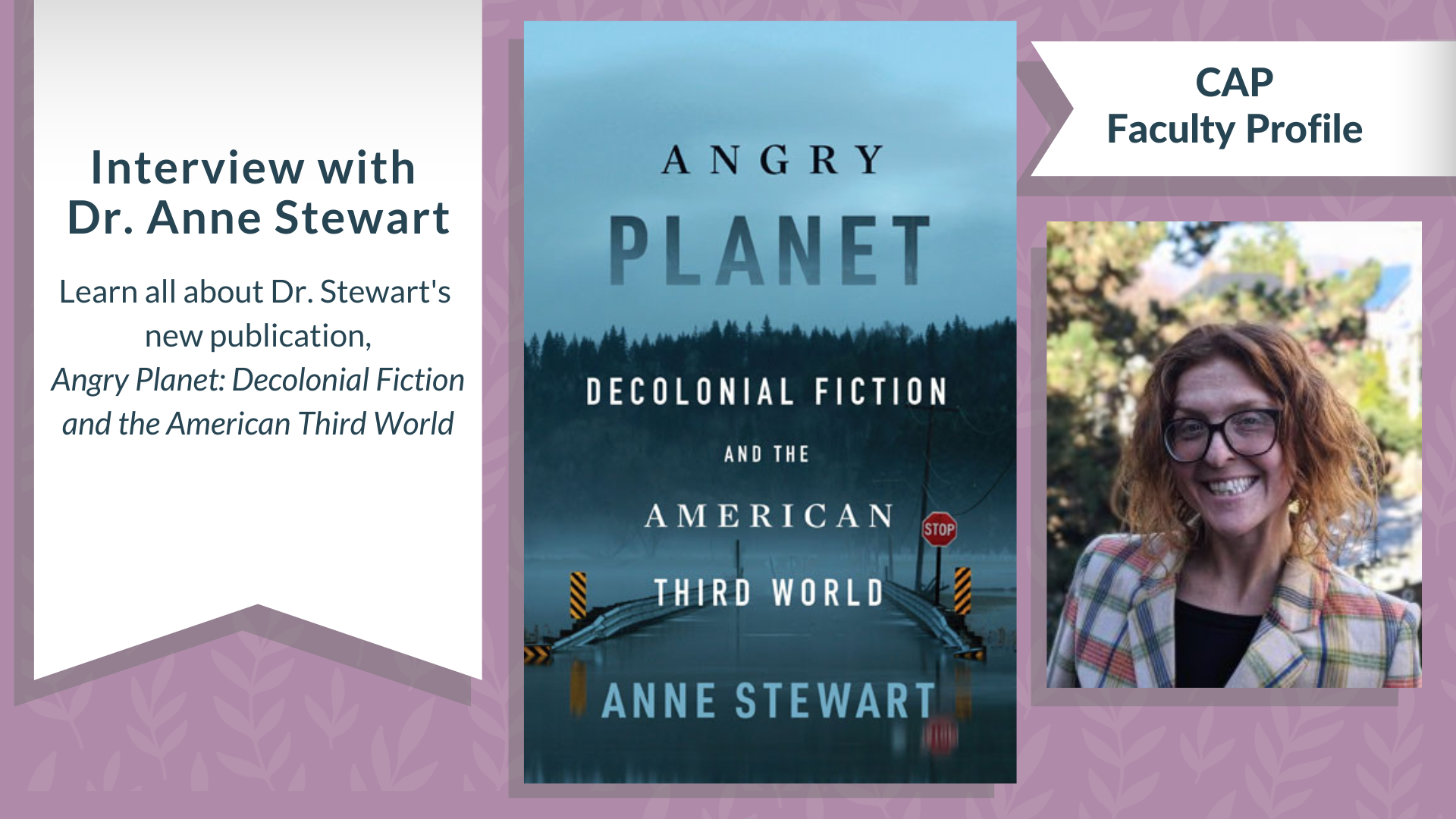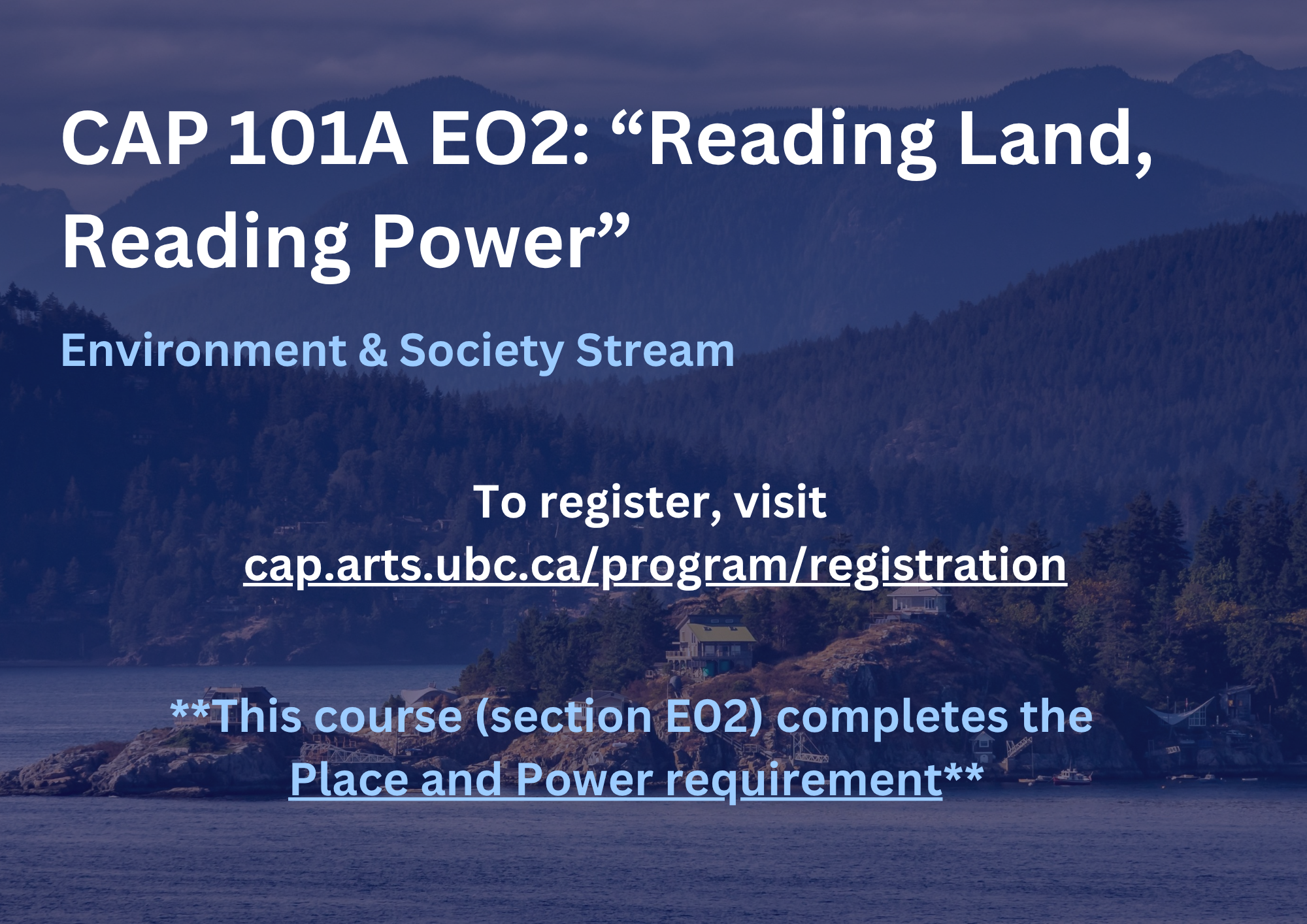

Angry Planet: Decolonial Fiction and the American Third World, an academic book written by Dr. Anne Stewart about literature in the 1990s, came out in January 2023! It is published by the esteemed University of Minnesota Press (2023). The back cover reads: “How might we understand an earthquake as a complaint, or erosion as a form of protest-in short, the Earth as an angry planet? Many novels from the end of the millennium did just that, centering around an Earth that acts, moves, shapes human affairs, and creates dramatic, nonanthropogenic change.”
The fact that ecological crisis has been imagined as the rumblings of an angry world intrigued us. So we sat down with Dr. Stewart to ask some questions we thought would be of interest to CAP students.
Here are her answers:
Q: How long did it take you to write this book?
A: 10 years! The gears of academic research turn slowly, so it took me about seven years to complete the project, from the first essay I ever wrote that would become part of chapter one, then a year to find a publisher, and then two years to take it from the manuscript that the publisher accepted to holding a published book in my hands.
Q: What’s your favourite sentence in the book (if you have one)?
A: That’s a tough one because it’s probably not my own sentence. Research projects tend to be more full of the smart things other people have said than our own words. But a colleague pointed this one out to me the other day, and it’s not bad: “Angry planet fiction, as we will discover, is full of grass, and like ontological assertions, no blade of grass is neutral.”
Q: In one sentence, what is the book trying to argue?
A: Paying attention to the role that planetary motion plays in literary fiction can provide us with a valuable interpretative tool for understanding how material conditions are shaped, which is not only by the capitalist mode of production, but by a planet that moves to demonstrate its difference from and rejection of colonial-capitalist social order.
Q: Why do you study literature?
A: I believe in the close relationship between our political and cultural imaginaries and the shape of the real world. I think that imagining and studying better worlds can create change in our physical reality.
Q: Where did you get the idea of an ‘angry planet’ as your title?
A: For the longest time, my title was “Decolonial Ontologies in 1990s U.S. Fiction” (yawn!) and then one of the many writing groups that I was in as I was working on this project pointed out the use of the term “angry planet” in the argument, and pretty much told me that was my title. I took their advice!
Q: Having written a full-length book, what’s your best writing advice for people who feel overwhelmed with a big writing project?
A: There will come a time when you have to think about the big picture in a writing project, but it really begins with writing sentences, and then paragraphs, and then argument sections, and then whole essays. When I was working on my PhD, me and my colleagues called it “making pages.” And that’s how any big project slowly comes together. You write, and the project becomes clear through writing, not the other way around. It’s easy to get overwhelmed when you think you need to whole project to be clear in your mind before you begin. To the contrary, writing will drive your thinking forward, and you’ll feel less overwhelmed the more you get on the page.


